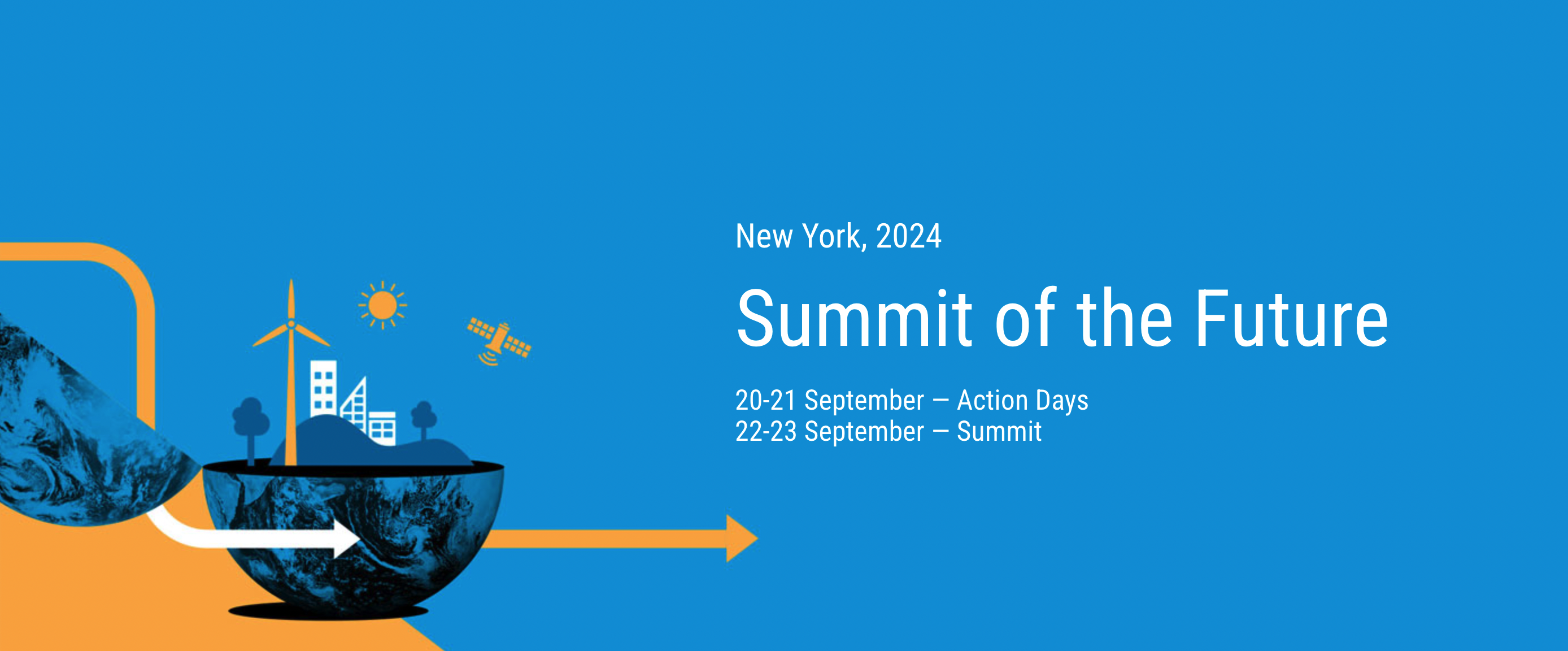
The Summit of the Future, held at the United Nations Headquarters in New York on September 20-21, 2023, represents a critical juncture in global governance. Aimed at addressing the urgent challenges of our time—ranging from escalating geopolitical tensions to climate change and digital divides—the summit’s overarching goal is to chart a sustainable, peaceful, and equitable future for all nations. The event underscores the need for a comprehensive international framework capable of tackling these challenges in an increasingly interconnected world.
At the heart of the summit is the Pact for the Future, which calls for renewed multilateral cooperation, reforms in the global governance system, and efforts to ensure that international institutions are equipped to handle 21st-century problems. Specifically, the summit’s focus areas include:
- Peace and Security: The UN’s New Agenda for Peace emphasizes the need for diplomacy, conflict prevention, and reforming multilateral institutions, such as the Security Council, to be more representative and effective.
- Sustainable Development and Poverty Eradication: Addressing poverty, social inequality, and ensuring a just transition to a sustainable economy are key pillars of the summit.
- Digital Governance and Technological Transformation: The Global Digital Compact aims to bridge the digital divide, regulate emerging technologies like artificial intelligence, and safeguard human rights in the digital sphere.
- Climate Action: Acknowledging the climate crisis as a “threat multiplier” for global instability, the summit advocates for urgent, cooperative action on environmental degradation and disaster preparedness.
While these goals are global in scope, the summit offers a unique opportunity for regions like the Western Balkans to align their national strategies with international frameworks. The participation of Western Balkan nations underscores their commitment to addressing these global challenges.
Addressing Poverty and Inequality in the Western Balkans
The Western Balkans have made notable progress in poverty reduction over the past decade, but substantial challenges remain. For example, Serbia has seen declining poverty rates, though regional inequalities persist, particularly in rural areas. In Kosovo, poverty levels are among the highest in Europe, with over 20% of the population living below the poverty line. These countries are working to align their national strategies with the UN’s Sustainable Development Goals (SDGs), focusing on job creation, education, and social safety nets to combat poverty.
Several governments have implemented policies aimed at fostering economic growth and reducing disparities. For instance, Albania has launched initiatives to boost small- and medium-sized enterprises (SMEs) and address youth unemployment. However, the region continues to face significant obstacles in closing the development gap with Western Europe.
Climate Vulnerability and Environmental Action
The Western Balkans are highly vulnerable to the impacts of climate change. Rising temperatures, unpredictable weather patterns, and water shortages are affecting agriculture and energy production across the region. Many countries have embraced renewable energy strategies to address these challenges, with North Macedonia and Albania adopting ambitious targets for reducing carbon emissions and transitioning to cleaner energy sources.
Nevertheless, these efforts are often hindered by insufficient funding, lack of infrastructure, and political instability. In Montenegro, for example, efforts to protect biodiversity and reduce pollution are often complicated by weak regulatory frameworks and competing economic interests, particularly in tourism and heavy industry. The Summit of the Future’s emphasis on global climate cooperation provides a platform for the Western Balkans to seek international support and strengthen their resilience to environmental threats.
Bridging the Digital Divide
In the digital domain, the Western Balkans face a significant gap in infrastructure, especially between urban and rural areas. While Serbia and Montenegro have made strides in expanding internet access, rural regions and underserved populations remain largely disconnected from the digital economy. The summit’s Global Digital Compact highlights the importance of closing this divide, both in terms of ensuring equitable access to digital tools and protecting against the threats posed by cybercrime, misinformation, and the misuse of emerging technologies like artificial intelligence.
Countries in the region have recognized the potential of digital transformation to drive economic growth and social inclusion. Kosovo, for instance, has emerged as a regional leader in IT and digital entrepreneurship, with a growing number of tech startups and government initiatives to foster innovation. However, much work remains to be done to bring the entire region up to par with global digital standards.
Conclusion: A Shared Global Vision
The Summit of the Future is a timely call to action for countries around the world, including those in the Western Balkans. By aligning their national priorities with the summit’s global agenda—particularly in areas like poverty eradication, climate action, and digital governance—these countries can contribute to and benefit from the international push for a more sustainable and equitable future. While significant challenges remain, the participation of the Western Balkans in this high-level dialogue signals their willingness to embrace multilateral solutions to both regional and global problems.
The summit offers a blueprint for collective action, recognizing that no nation can tackle these complex issues in isolation. For the Western Balkans, this means not only addressing their internal challenges but also playing a proactive role in shaping the international system of the future.

